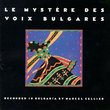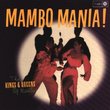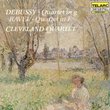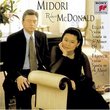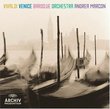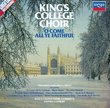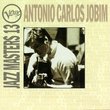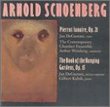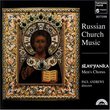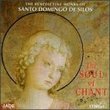| All Artists: William Byrd, Michael Praetorius, John Whitfield, Samuel Scheidt, William Brade, Thomas Simpson, David Douglass (Director), Ellen Hargis (Soprano), Paul O'Dette (Lute & Cittern), The King's Noyse Title: The King's Delight: 17th Century Ballads for Voice & Violin Band - Paul O'Dette / The King's Noyse / David Douglass Members Wishing: 2 Total Copies: 0 Label: Harmonia Mundi Fr. Release Date: 3/1/1994 Album Type: Import Genres: Dance & Electronic, Special Interest, Pop, Classical Styles: Vocal Pop, Opera & Classical Vocal, Chamber Music, Historical Periods, Baroque (c.1600-1750), Instruments, Strings Number of Discs: 1 SwapaCD Credits: 1 UPC: 093046710125 |
Search - William Byrd, Michael Praetorius, John Whitfield :: The King's Delight: 17th Century Ballads for Voice & Violin Band - Paul O'Dette / The King's Noyse / David Douglass
CD DetailsSimilarly Requested CDs |
CD ReviewsI don't get it. . .the singing is excellent! William Atkerson | Missouri City, Texas USA | 06/29/2004 (5 out of 5 stars) "Other reviewers love the instrumental selections and berate the singing. Personally I find the purity of tone of the singer absolutely captivating. I do not hear any shrillness at all. The recorded sound seems ideal for this music, and all performers, singer and instrumentalists, are top notch, as is the selection of compositions on this CD. Highly recommended." Awesome Renaissance Music GreenParrot | 09/29/2000 (5 out of 5 stars) "Don't miss this CD is you love renaissance music played on period instruments. Lively and delightful to listen to. It will sweep your heart away!" Gentle sounds such as these will always enjoy command over t Mr Russell S. Wollman | Fairfield, Iowa United States | 07/08/2004 (5 out of 5 stars) "The selections on this disc are quite nice, on par with "The Queen's Delight" disc also from the same artists. The tone of some selections is a bit more serious perhaps, but I wish to offer that Ellen Hargis' fine soprano voice lends great magic and power to the vocal selections. And though I am sensitive to harsh or annoying sound, that is not, I found, the case with her work here. The ear of the beholder is all-important, of course, and we all have our preferences.The graceful and elegant work of The King's Noyse will warm your heart, gladden your spirits, and engender your gratitude and curiosity for that unique period of time which gave rise to these ballads. Gentle sounds such as these will always enjoy command over time."
|

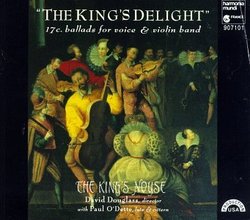
 Track Listings (24) - Disc #1
Track Listings (24) - Disc #1